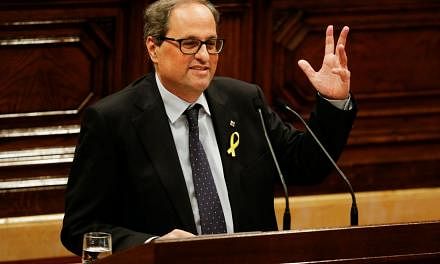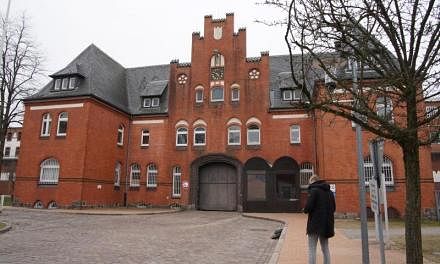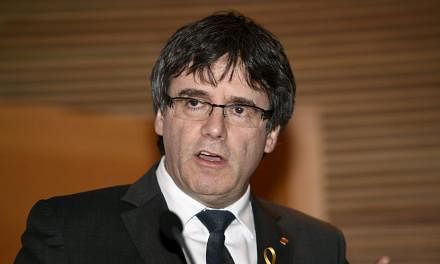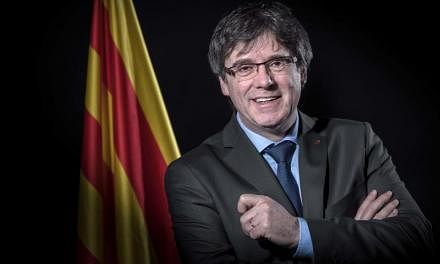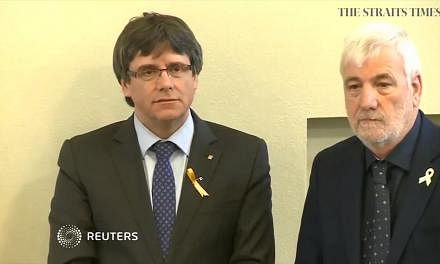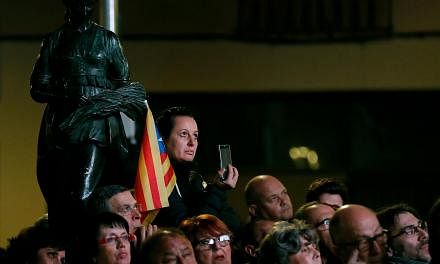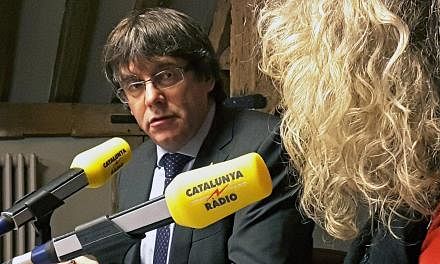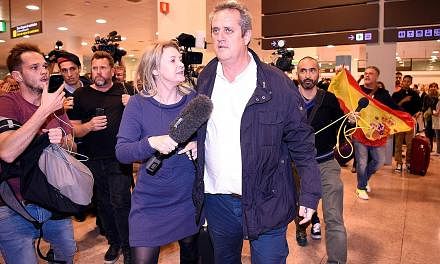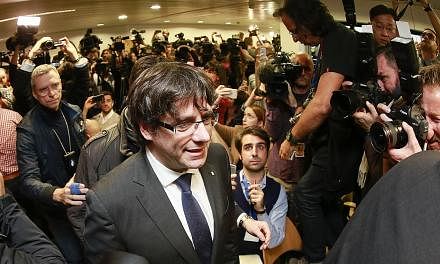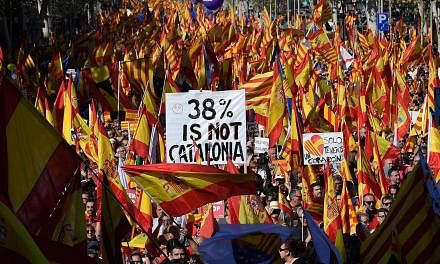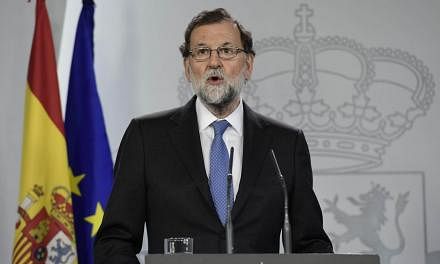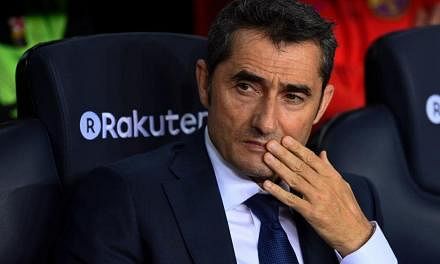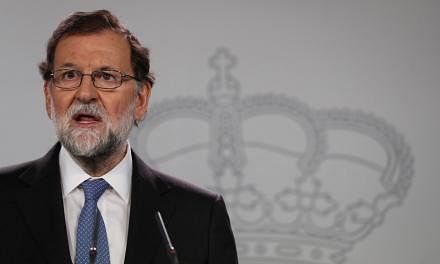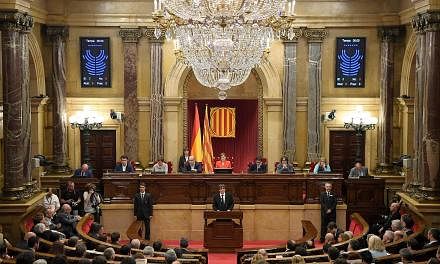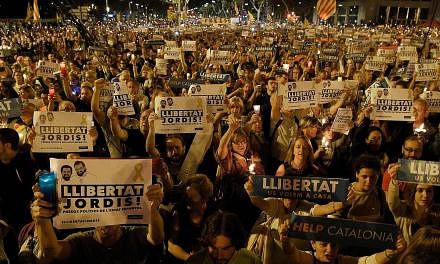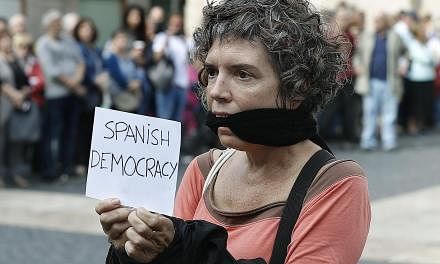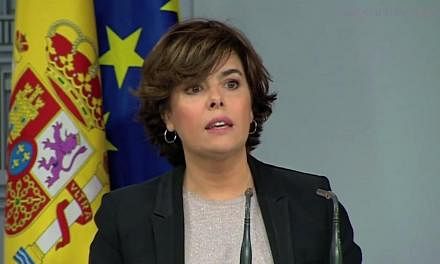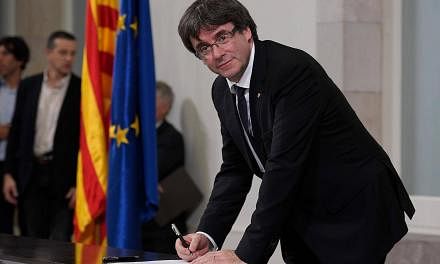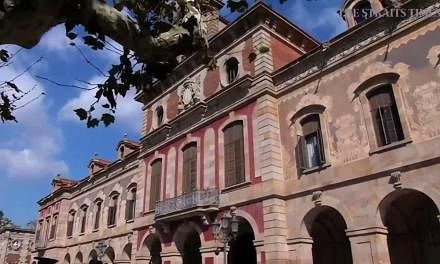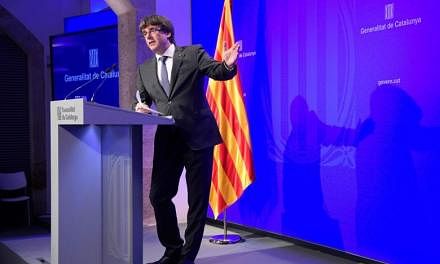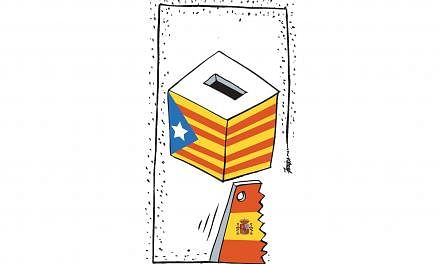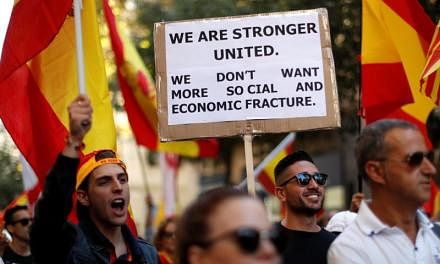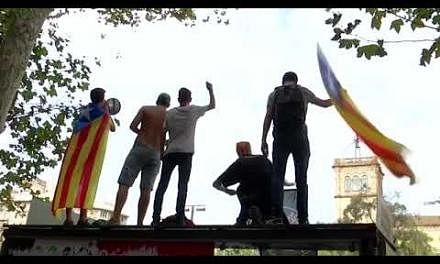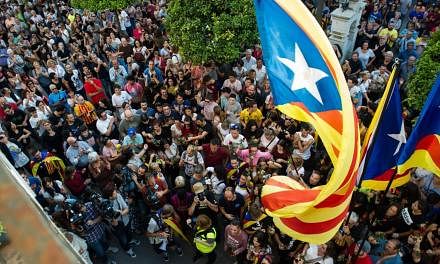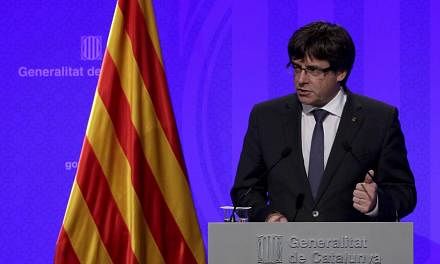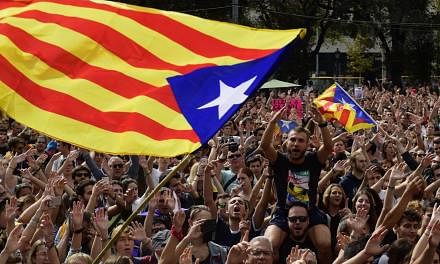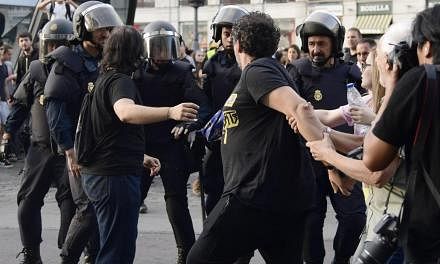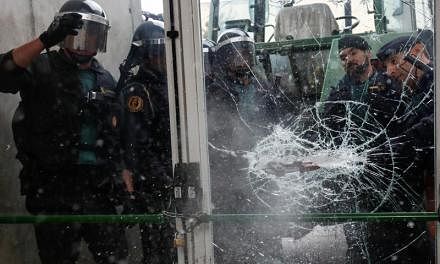BARCELONA (NYTIMES) - Agustí Colomines, a Catalan civil servant, held up a copy of the decree from Madrid that had fired his boss and all the other leaders in the Catalan regional government.
"This is only words," Colomines said on Sunday afternoon (Oct 29). "It's not a real thing."
As the Spanish government tries to restore constitutional order in Catalonia, after the Catalan Parliament's declaration of independence last Friday, a question is whether the Catalan administration - its ministers, lawmakers, judges, teachers, policemen and civil servants - will fall in line on Monday and take their orders from the new caretaker administration installed on Friday by Madrid.
Or will they, like Colomines, resist?
On Saturday, Carles Puigdemont, the Catalan president who was ousted by Madrid after the declaration, hinted he hoped for the latter. His sacked government intended, he said in a televised speech, "to continue to work to meet our democratic mandates", in effect creating two rival administrations: his own breakaway Cabinet, and the central government.
In Catalonia now, "there are two parallel realities", said Oriol Bartomeus, a politics professor at the Autonomous University of Barcelona.
On the one hand, Spanish border guards are still in charge at Barcelona airport and the Spanish flag still flies over the Catalan Parliament.
On the other, "we have part of the country that really believes that 'we are free, we have an independent republic', and for this part of the country, President Puigdemont and his government are the legitimate government of Catalonia," Bartomeus said.
"It's easy to take out the government: You just have to write it" in the official Spanish gazette, he added. "The problem is to rule Catalonia - to have an efficient political direction of the government and the administration."
Puigdemont spent the weekend in his home city of Girona, where local officials removed Spanish flags from municipal buildings. His office would not disclose whether he would return to work in Barcelona on Monday, but several of his allies said they will operate as normal. These include Josep Rull, the minister of planning and sustainability, who attended an official function Sunday despite being nominally sacked.
"As Puigdemont said in Saturday's speech, we are going to keep working," said Neus Lloveras, a Catalan lawmaker from Puigdemont's party. "The government we recognise is the elected Catalan government."
And even if Puigdemont is arrested on sedition charges, Lloveras added, "the Catalan republic will continue because the republic is not about individuals".
"It's a popular movement," she said, "not a personal project."
The Catalan police force, Mossos d'Esquadra, made it clear over the weekend that they would follow orders from the Madrid-installed administration, which is headed by the Spanish deputy prime minister Soraya Sáenz de Santamaría.
After the Spanish government fired the head of the force Josep Lluís Trapero on Saturday, his successor Ferran López stopped providing protection to Catalan ministers, and Puigdemont's official photograph was removed from many police stations.
Many officers privately welcomed López's appointment because Trapero was perceived inside the force as having allowed Mossos to become too politicised, said a senior official in a major police union, who asked not to be named because of the sensitivity of the subject.
For many civil employees, the decision whether to follow orders from Madrid when they show up for work on Monday will be driven not by politics but by more practical considerations.
Since Madrid controls their pay, "most of the public workers are afraid of losing their jobs, and having their salaries cut", said Joan Maria Sentís, coordinator of the Catalan branch of the Workers' Commissions, the largest union in Catalonia.
But in parts of the Catalan administration, especially among more senior political appointees, many were happy to show their support for Puigdemont. More than 150 political appointees to the highest ranks of the Catalan civil service were offered the chance to resign if they disagreed with the declaration of independence on Friday, but only a few accepted, said Colomines, one of the senior civil servants who decided to stay.
Colomines said he would continue to take orders from his fired boss, Meritxell Borràs, the minister for governance, because he believed he was now living in a new Catalan republic.
"Meritxell is my minister," Colomines said, dismissing the order from Madrid as "a bit of paper".
Ordinary citizens have also promised to protect Catalan institutions from Spanish control, much as they did during an Oct 1 referendum, when thousands of civilians - sometimes accompanied by Catalan firefighters - stood in the way of the Spanish riot police who had tried to storm the polling stations.
"We are ready to be there to defend our institutions peacefully, cheering, in good spirits," said Oriol de Balanzó, a spokesman for En Peu De Pau, or We Stand For Peace, an alliance of grass-roots groups that promotes nonviolent demonstrations.
"As we saw on Oct 1, people were sitting or standing outside the polling stations - and it's going to be like that," de Balanzó said.

